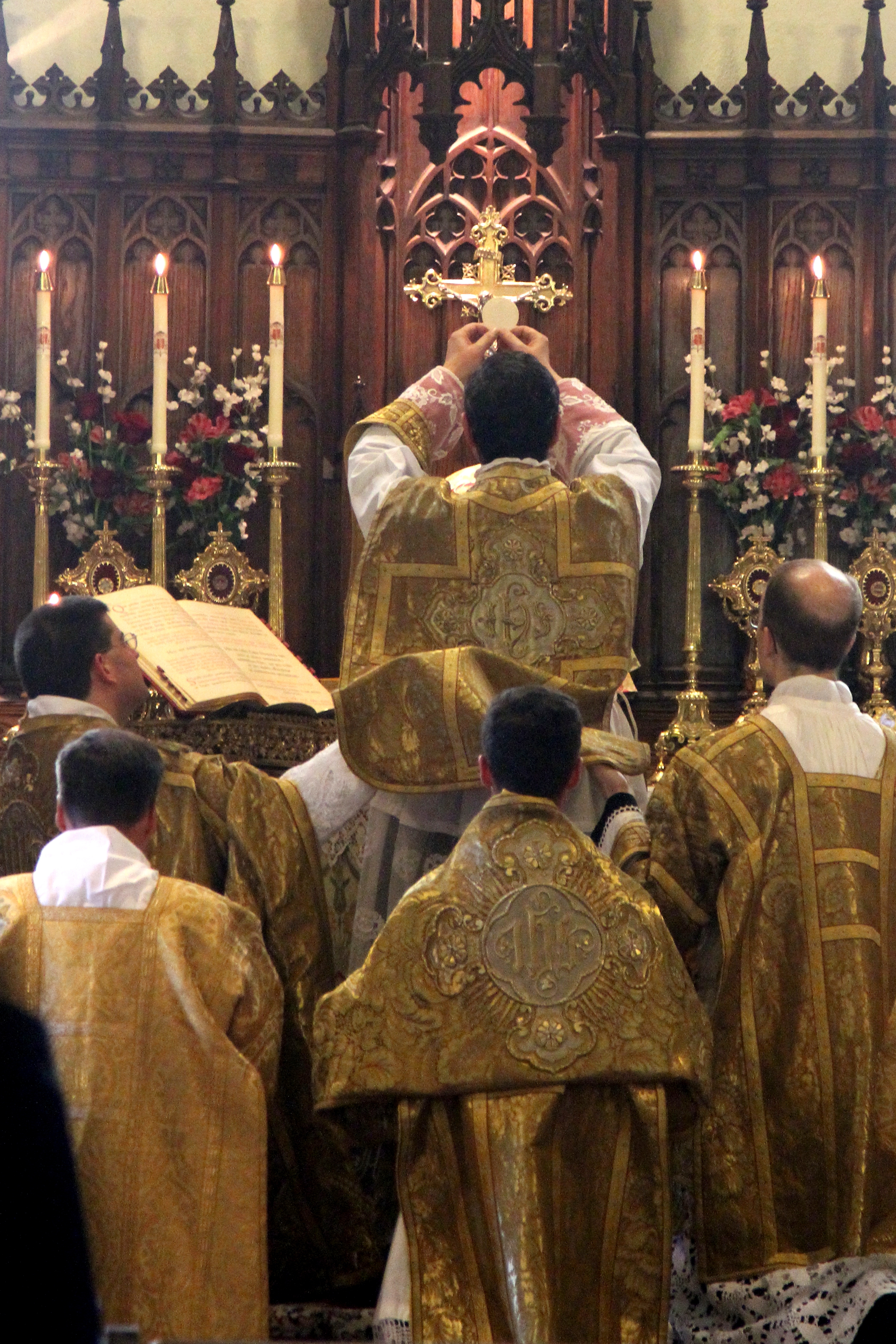We
all know that person. They are not a part of organized religion because it’s
too “oppressive.” It controls people,
hoards money, and judges those who are different. This view of being spiritual but not religious
can take many forms. I believe that many
adopt it out of a desire for flexibility, as a way to affirm their own innate sense of being more than simply material beings, but I believe that even more take up
the practice out of a desire to “not judge” or “infringe upon someone else’s
truth.” If done correctly, it leads to foolishness such as claiming to hate religion, but love Jesus. I will freely admit that the
blame for the “spiritual but not religious” craze probably falls most
squarely upon the members of the Catholic Church. Fact
of the matter is that we Catholics have not done a good enough job connecting
with people and spreading the One Truth.
I plan to fix this, one blog post at a time.
Witness the Eastern spiritualite
who adheres to the spiritual principles of reincarnation, karma, and
meditation. That each man is his own and
on his own journey, yet somehow ethereally connected to all other men within
some sort of transcendent “All.”
Or the
more Westernized version of the same sort of idea: renegading “free thinkers”
who feel that organized religion is either uncool or just so Dark Ages that
they can’t be bothered with it. But when
pressed as to why they practice yoga?
(“No way brah! Yoga is so
chill. (As they ignore the fact that
yoga predates Christianity.)) The meaning
and purpose of their lives are what they
make of them, not what some stodgy old cleric who’s probably never even had sex
or smoked pot before says they are. They
decide their own spiritual path, damnit!
Then, we have the better, but still grimace-inducing quasi-Protestant,
who feels that it’s all about his “personal relationship with Jesus.” Everything else he does is extra—it’s that
really personal, lovey-dovey “happy-happy times” feeling he gets when he thinks
about Jesus that really matters. That’s
what counts, not some ancient tradition, or rituals, or anything like church
attendance—Heaven forbid!
The unifying,
undergirding maxim of all three of these “spiritual but not religious” folks’ respective
iterations (and I am sure that there are many, many more) is quite nicely
summed up with a reference to pop culture. Will Ferrell, playing candidate Cam Brady in The Campaign, in response to the
question, “Is it true that you have not been to church in over nine months?”
had this to say: “My relationship to God is not measured by taking attendance.”
I’d
like to press the point a bit, if I may: is what Ferrell is saying here really true? I know it sounds really good and appealing. God is everywhere! God loves and accepts all people! Religion divides and controls people! Boo religion!
It’s icky and the leaders just want to hoard as much money as
possible and rape altar boys and yada-yada-yada. We’ve heard it all before. And guess what guys? I am quick to agree with him on this
one! (Shocker? Maybe; depends on how well you know me, I
guess.) My relationship with God is
certainly not measured by how often I
attend church…. Except when it is. Said another way: if I have a true
relationship with God, then I will be
at church, as paradoxical as that sounds.
Allow
me to explain. All this “spiritual but
not religious” jargon is akin to a man who, when asked if he loves his mother, says, “Of course I love my mother: I think about her all the
time.” When asked how often he calls her, he replies, “You know, I would say that it’s usually when I have nothing
better to do.” When asked how often he visits her, he replies, “Well, maybe on Christmas, but that’s about it; she
knows I love her, though.”
We
would all cringe at these answers, would we not? It is almost instinctive that we reject this
person’s responses about his actions concerning his love for his mother. Why is this so? It is because, like it or not, ideas have consequences, and this man is not showing, by his actions, that he loves his mother as much as his lip-service is claiming he does. It is a very simple concept. My ideas about the world, the things in it,
the people I am involved with, all have consequences. If I believe that there are such things as
shoe-upside-down hobgoblins who will steal my shoes in the dead of night if I
leave them upside down, and I want to keep my shoes, well, I am going to make
damn well sure that my shoes stay right-side-up, right? If I believe that trees can talk, and I want
to talk to trees, well, I am going to spend my time trying to communicate with trees,
right? And if I believe that my friend
is mad at me, and I care to have a good relationship with my friend, then I am
going to try to figure out how best to make amends with my friend, right?
In
the same way, if I believe that there is a God, and I wish to have a connection
with Him/have a relationship with Him/be in communion with Him, then I will strive
to do that-which-will-permit-me-to-do-this-best, right? It is true that He is omnipresent—He is
everywhere. I get that when you tip your
waitress a little extra, or volunteer at a homeless shelter, or even when you
just meditate or pray in your room, that He is present. This is not news, people. But, from a Catholic perspective, there is a
radical difference between being at Mass and being anywhere else, because, at
Mass, God makes Himself present to us in a unique and special way.
Let’s
run through it really fast. Let’s just say
that there was an institution that purported to have been founded by God’s
Son. Let’s just say it also purported to
have never fallen into true error in an official capacity (nor will it
ever). Let’s just say it’s been around
for, oh, just about 2,000 years now (ahem,
oldest institution on the face of the earth *cough* and still chuggin’ along,
I might add *cough*). Let’s just say it
also kick-started the Scientific Revolution.
Let’s also add in the fact that this institution claims that you can (and
should!) eat the flesh of the ever-living God-man, Christ, and drink His most
Precious Blood EVERY. DAMN. DAY! (If you so choose, of course.) And this
institution cares so much about this practice that it actually requires its faithful to come every
Sunday to partake in the meal (provided they are properly disposed, of
course). Now, I’m not saying that those
who are “spiritual but not religious” can’t connect in some meaningful sense
with God, or be saved, etc. etc., but if there were an institution that claimed all this, wouldn’t you be in the
least bit curious about it? Wouldn’t you
at least seriously investigate it? And at
most, be a part of it wholeheartedly?
In
case you haven’t figured out that the Catholic Church was the glorious subject
of that last paragraph, I will make it painfully obvious: yes, I was referring to the Catholic Church. And let me
just add that going to Mass is not some requirement to be checked off of our
proverbial cosmic to-do lists on our way to salvation (or at least it shouldn’t
be). Mass is a fundamentally relational activity. A man is more in a relationship with God at Mass
than he is anywhere else, doing anything else. In fact, he is as in communion with God at
Mass as he ever can be here on Earth, this side of death.
So
the next time you run across that “spiritual but not religious” person, ask
them if they take pleasure in depriving themselves of the activity that most fully places them in communion with that which they claim to be seeking—God. Ask them if they regularly settle. Because that’s what “I’m
spiritual but not religious” means: “I’m settling.” It means, “I know of this
other activity which can satisfy my desire for
God better, but I won’t partake in it, just because, well, because rules (or fill in your particular pet peeve here).”
Sounds pretty nonsensical to me.
How about for you guys?













.JPG)


0 comments: